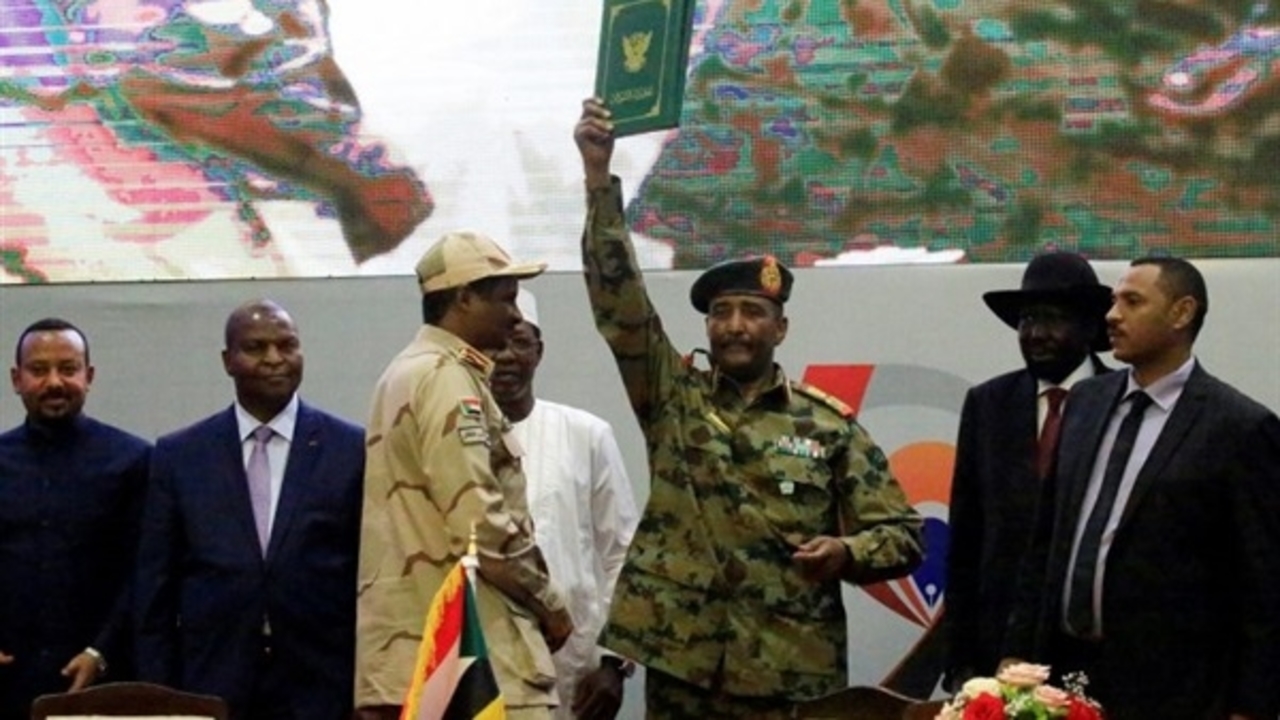The 11-member sovereignty council, the highest body in the transitional government in Sudan, was formed on August 20. With its establishment, the military junta, known as the Transitional Military Council (TMC), is now defunct. The head of the military junta, general Abdel Fattah al-Burhan, is the head of the sovereignty council and the president of the country. The TMC has been ruling Sudan since former president Omar al-Bashir was ousted in April by mass demonstrations.
General al-Burhan will head the council and the country for the first 21 months of the 39-month-long transitional period before elections are held. The new president swore in the other members of the council, as well as the new prime minister, Abdullah Hamdok, an economist on August 21.
General Mohammed Hamadan Dagalo, the head of the Janjaweed militia called the Rapid Support Forces (RSF), has also been appointed to the sovereignty council. The RSF was responsible for the massacre of over 100 protesters on June 3. The other military members are Yasser Atta, Ibrahim Gaber and Shams al-Din Kabashi.
The civilian members who have been appointed to the body are Hassan Mohamed Idris, Al-Siddiq Tawer Kafi, Ayesha Musa Saeed, Mohamed Osman and Hassan al-Taayeshi. They were appointed by the opposition alliance, called the Declaration of Freedom and Change Forces (DFCF). The DFCF is a coalition of political parties and unions which came together to represent the protest movement.
Raja Nicola Issa Abdul-Masseh, a Coptic Christian judge, is the 11th member of the council who was agreed upon by both sides.
The members of the sovereignty council, including the heads of the former military junta accused of being responsible for the massacre, are granted immunity from prosecution as per the power sharing agreement previously signed between the DFCF and the junta.
This immunity can only be lifted by the Legislative Council, 67% of whose members will be appointed by the DFCF. The remaining 33% will be members of other political parties, excluding those whose were part of the al-Bashir-led government.
Families of the protesters who were killed by the RSF and the regular security forces have demanded that their representatives be given membership in the legislative council in order to ensure that this body uses its power to lift the immunity and put the accused on trial.
However, this body will be formed 90 days from today. Until then, the legislative functions will be carried out jointly by the sovereignty council and the cabinet. Any bill passed by the former will automatically become law if the latter does not vote on it within 15 days.
The cabinet will be chosen by the PM from among the nominations submitted by the DFCF on August 28. However, the sovereignty council will have a veto over the PM’s choice of cabinet members.





